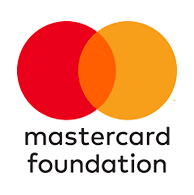
29 || June || 2024
View in BrowserIn partnership with

Issue #68
Can PMs fight
oga-driven development?
Greetings ET people 
If you work in a startup, then you should be familiar with today’s topic: “Oga-Driven Development.” Have you ever battled principalities and powers (sorry your CEO) at work on whether or not to build a product?
For those unfamiliar with the term, “oga” is a Nigerian pidgin word for “boss” or “superior”—like your CEO. So, what happens when product decisions are primarily driven by your boss’s gut feeling rather than data, user needs, or team insights? (Do they get these ideas from their dreams?) And how does that affect your work as a product manager?
Sometimes founders think these product features will get them closer to their goals—or maybe they think it is the next best thing since sliced bread.
Temi Giwa’s article on why this phenomenon might indeed be the PM’s fault had people arguing on Twitter. In the article, Temi says that every bad feature is (not) the fault of the PM who built it and that “training schools are churning out product management certificates but their graduates can’t get a job as a PM.”
Whether you agree or not, we are not here to judge you. We spoke to Temi herself, a product lead at Paystack, Karen Ginigeme, an experienced product manager in the UK, Elizabeth Ajao, an award-winning product manager, and our very own product manager at Big Cabal Media, Chioma Nwandiko, to share their thoughts.
Faith Omoniyi & Emmanuel Nwosu

What is “oga-driven” development? (ego-driven development)
Your job as a product manager is to build a great product. And your CEO’s job is to show you the vision for the product that you want to build.
Sometimes, your ideas on what you think your company needs at a particular time might differ from your CEO’s vision, even though you both want the same thing.
Often, your boss has a strong opinion about what features should be built or how the product should work, and these opinions drive the development process, even when the opinions are wrong.

Now, you might be thinking, “Isn’t that how it should be? The boss knows best, right?” Well, not always.
CEOs in startups are typically the first product owners, meaning they play a key role in decision-making. Sometimes, shedding that responsibility fully might be hard for them, even after they’ve hired a product manager. However, as specialists, product managers play a key role in developing and implementing (new) products and features.
As a product manager, you’ve got a unique perspective that even the CEO might not have. You’re talking to users, getting feedback, looking at data, and working closely with the development team. All of these inform you with perspectives that might be different from your boss.
But here’s the tricky part: Your boss isn’t always wrong. Sometimes, they have insights or visions that could take the product to the next level. The challenge is figuring out when to push back and when to get on board.
It’s like a dance. You need to learn how to move with your oga’s rhythm while also guiding them toward what you believe is best for the product and the users.

In data, we trust
There is an office lingo that goes, “In God we trust, everybody else must bring data.”
In one of her “oga-driven development” experiences, Temi shared an instance when her boss wanted to build an exciting product. She didn’t have faith in what they were building and raised it with her boss after running the numbers.

“We were going to burn money for the next five years,” she shared. She asked questions about her CEO’s decision, and allowed them to convince her.
It reminds us of this funny video that shows a product manager’s reality in tech companies that want to prioritise generative AI for their product roadmap because it’s trending right now.
When things aren’t all it seems with a product your boss wants to prioritise, ask questions about what they think the product or feature addition will do for the company, what other success metrics you can use to rate that decision and run tests on a smaller scale.
There are two sides to this outcome: It is either you key into their vision for the product, or convince them why that addition is a bad idea.
But, do you stand any chance to control product development decisions as an entry-level product manager?
Expert PMs who spoke to us all agree that when you get hired in a tech company as a product manager, you must spend time building stakeholder trust. You do this by communicating effectively.
When we pressed further, Elizabeth shared that she had worked with bosses who gave her product ownership, and she had also worked with others who didn’t shed the same level of authority as her, no matter what lengths she went to. She advised new PMs to focus on building friendly work relationships with their bosses.
One thing product boot camps don’t teach you is how to build this trust. Product managers are domain experts in any product they build.
*Newsletter continues after ad
Attend the Mastercard Foundation EdTech Conference

The Mastercard Foundation is hosting its inaugural EdTech Conference from July 8 – 10, 2024 at the Transcorp Hilton in Abuja, Nigeria. The Mastercard Foundation EdTech Conference, in partnership with the Federal Government of Nigeria, is themed ‘Education Technology for Resilient and Inclusive Learning in Africa.’Expect conversations on the current state of the EdTech ecosystem, emerging trends, the role of EdTech in solving Africa’s educational challenges and much more.

How to balance influence
Three main levers contribute to excellence as a product manager: bravery, domain expertise, and top-notch collaboration skills. These factors affect the work you do, and how other stakeholders and higher-ups are able to trust your judgement.

Chioma acknowledges that entry-level product managers may experience a more “oga-driven” work style due to the knowledge gap between themselves and the CEO. However, she recommends that focusing on building stakeholder trust by being open to learning, staying curious, and keeping up with the market trends is key to success.
Temi also shared that staying naturally curious about as many things as possible that had to do with her product helped her get to the level where higher-ups began to trust her judgement more. It also helps to become adept at looking at data, and making strong recommendations off of it.

Karen advises that you document like your life (read: job) depends on it. When you run small projects, showcase your learnings and small wins; it helps to track performance with an experimentation sheet to help you build up data to back up these projects. Karen talks more about growing your skillset as a product manager in a previous Entering Tech article.
Finally, Elizabeth adds that as a product manager, you must ensure you build a strong knowledge base about your product. Nobody should know about your product better than you in your company.
Once you have a stronger grasp of your product, industry, adjacent markets, and the business of running a product like yours, then your boss begins to trust you with critical product decisions. It just doesn’t happen overnight.
Your portfolio as an excellent product manager is judged on the merits of the functional, extraordinary products you’ve built. While you start off, make learning your ally; how to break down and solve complex problems, study your market and notice trends and sentiments, and build a solid hypothesis on what will work (and what won’t). Back this up by data and experiments.
The numbers don’t lie.
However, as you build domain expertise and discover that your boss still finds it difficult to shed some product decision-making power to you, then it may be best to re-evaluate your position in that company, Temi advises.
But remember, at the end of the day, you’re both on the same team. The goal is to build something amazing that users love and help the company succeed.
P.S: You can let us know your thoughts by responding to this newsletter or sending an email to newsletter@techcabal.com!

Jobs
- Big Cabal Media – Senior Video Producer, Deputy Editor (Zikoko), Event Production Assistant, Client Account Manager – Nigeria
- TechCabal – Features Writer, Features Director – Africa
- Leadway Assurance – Relationship Officer – Lagos, Nigeria
- Kuda Bank– Content Writer – Lagos, Nigeria
- Quidax – Market Operations Intern, Revenue Assurance Analyst – Lagos, Nigeria
- Carry1st – Growth Manager – Lagos, Nigeria
- Bumpa – Senior Mobile Engineer, Senior Backend Engineer – Nigeria (Remote)
- Comiblock – SEO Specialist, Data Engineer, Machine Learning Engineer – Lagos, Nigeria
There are more jobs on TechCabal’s job board.
Disclaimer: TechCabal is not affiliated with or associated with jobs and opportunities listed on all its job boards and newsletters. All applicants bear the responsibility of researching about the roles and companies they apply to.

Here’s where to find your first tech job
If you’re interested in kicking off your career in tech, here’s a list of job boards that regularly upload their platform with African tech jobs.

No longer want to receive these emails? Unsubscribe here
from TechCabal https://ift.tt/y06pzl7
via IFTTT







Write your views on this post and share it. ConversionConversion EmoticonEmoticon